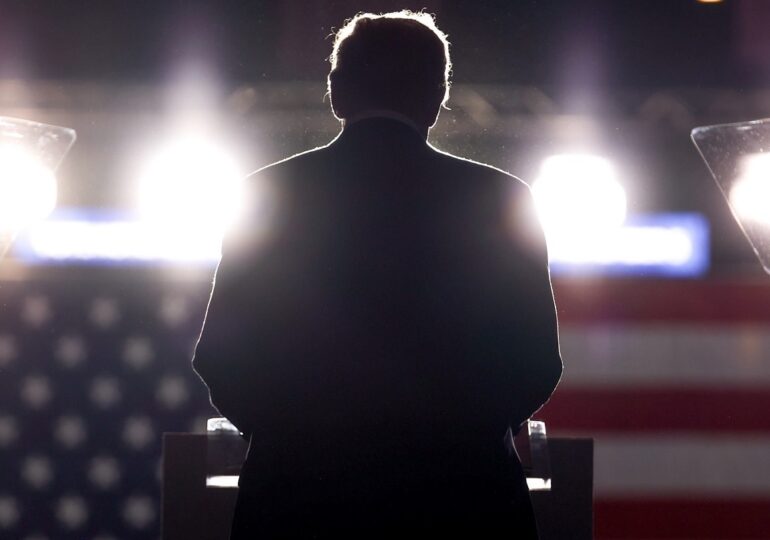Trump is building walls. His trade policies obstruct not only the flow of goods but also the flow of ideas, contacts, technology, and friendships.
His immigration policies do the same. He attacks the institutions and communities most involved in international exchanges: scientific researchers, universities, the diplomatic corps, foreign aid agencies, and international alliances like NATO.
The essence of Trump's agenda could be: we don't like those damn foreigners, writes David Brooks in an opinion article published by the New York Times, starting from the isolationist policy of the American president.
The problem is that the great nations throughout the history of Western civilization have been crossroads nations. They have been places where people from all corners met, exchanged ideas, and came together with others anew.
This was America, this was the future
In his book "Cities in Civilization," Peter Hall analyzed the most innovative places in the history of humanity: Athens in the 5th century BC, Florence in the 15th century, Vienna from the late 18th century to the eve of World War I, New York from the late 19th century to the mid-20th century, the later Gulf area.
All were meeting places for people from different nations. "People meet, discuss, listen to each other's music and words, dance each other's dances, think about each other. And so, from accidents of geography, sparks can fly, and something new can come out of the meeting," writes Hall in his book.
Such things, he continues, happen at junction points, places that encourage global interaction. Such places have common characteristics: they are unlimited, not determined by class, non-hierarchical, informal.
"Economic innovation explodes," he writes, "in places with a rich network of import channels, which, in turn, provide channels for new ideas."
"This was America, this was our future," writes Brooks. America was a crossroads nation that attracted highly motivated immigrants who wanted to be where the action was, a nation that supported free trade. British colonialism and American internationalism made English the closest thing to a universal language, Brooks writes.
In a 2009 essay for Foreign Affairs titled "America’s Edge," Anne-Marie Slaughter argued that power in the 21st century would return to nations that place themselves at the center of networks, and America was suited to play this role.
It has a diverse population, with global connections, alliances across two great oceans, the largest universities with large foreign student bodies.
All of these are now deteriorating, the author emphasizes, confessing that his main concern is about the spirit and values of America.
People's psychologies are determined by the circumstances that surround them. The conditions Trump creates are based on a security mindset: they threaten us; it's a zero-sum world where everyone attacks each other; we must protect, protect, protect, we must build walls, he describes Trump's ideology.
If you analyze the cultures of societies at their peak, they are almost the opposite of the mentality we encounter now.
In "Civilisation," his own study of the high points of Western history, art critic Kenneth Clark concluded that great periods are built on a great confidence - a nation's confidence in its laws and abilities. That common culture of confidence naturally instilled social courage and a spirit of adventure in people.
Conditions for innovation
Think, for example, about the kind of people who stimulate innovation and dynamism, the author proposes. How are they?
They put themselves in unknown situations. They are excited by novelty. Journalist Adam Hochschild once wrote: "When I am in a country radically different from mine, I notice much more. It's as if I've taken a mind-altering drug that allows me to see things I would normally miss. I feel much more alive."
They have diverse curiosity. Their interests and enthusiasm cover many spheres. Nobel laureates are at least 22 times more likely than an ordinary scientist to have a secondary hobby as a magician, actor, dancer, or other type of performer.
They have a social palette, a wide variety of friends. Decades before publishing "On the Origin of Species," Charles Darwin regularly exchanged letters with at least 231 scientists from 13 different fields, as varied as economics and biology.
They are able to combine disparate worldviews. Creativity often arises when someone combines two galaxies of ideas. Pablo Picasso combined Western portraiture with African masks. Johannes Gutenberg combined woodcutting, coin minting, and wine press making to create his printing press.
They aim for continuous growth. They seek to expand their areas of interest and attachment, engage in continuous self-improvement. You can observe such people because they have gone through different chapters. Always learning, they have changed their interests and worldviews over the years, abandoned a tradition that made sense, and built something new. Ralph Waldo Emerson wrote: "Man is great not in his purposes, but in his transitions."
The day of stagnation has come
All these values mentioned here are encompassed in one term: cosmopolitanism. A cosmopolitan person has roots in one city and one nation but values and learns from many other national streams.
It seems that the 21st century has seen attack after attack on cosmopolitanism – starting with September 11. Leader after leader appeals to fear of impurity and threats. This universal atmosphere not only reduces contact between peoples but also extinguishes the spirit of adventure that was America's best defining trait.
Trump called Wednesday Liberation Day, but Stagnation Day might be a more fitting name.
If America is still America, these tariffs will represent the turning point of the Trump presidency. People will be outraged by the unnecessary economic pain they cause and, more subtly, revolted by the cowardly values they represent.
T.D.

